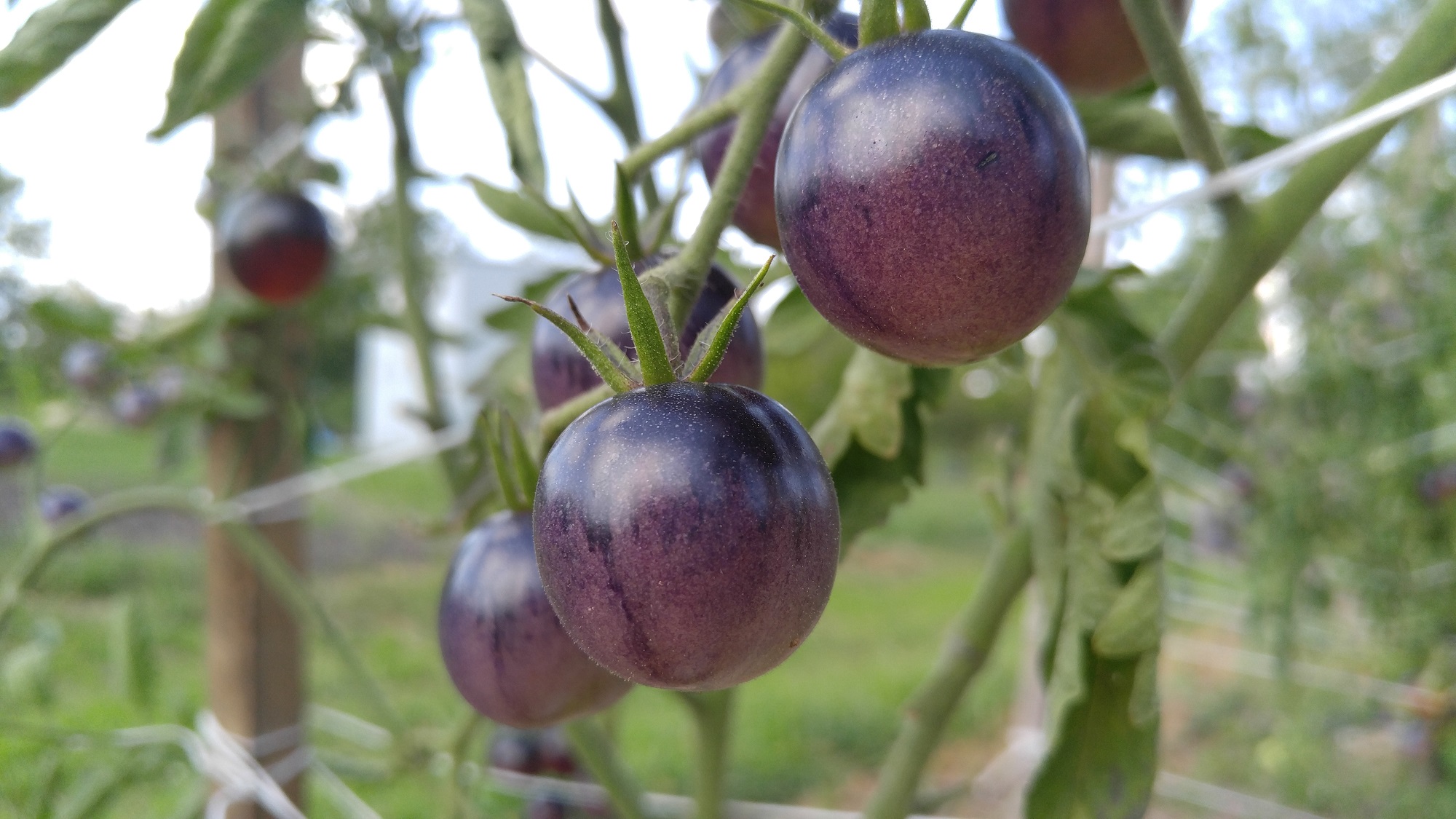
Beauty Is More Than Skin Deep in These Cherry Tomatoes
UT Gardens’ March 2018 Plant of the Month: Cherry Tomatoes
Submitted by Natalie R. Bumgarner, assistant professor of residential and consumer horticulture and Tennessee Extension Master Gardener coordinator
To the vegetable geek, it is not actually late winter or early spring, it is quite simply “seed starting season.” So, as the heat mats and grow lights come out, and the peat moss starts flying, you might want to consider growing some beautiful small-fruited ‘Valentine’ and ‘Midnight Snack’ All American Selection (AAS) award winning tomatoes this year.
‘Valentine’ is an indeterminate grape tomato and a 2018 AAS winner that was certainly prolific in 2017 trials at the UT Gardens, Knoxville. Advertised to begin bearing fruit 55 days after transplanting, we actually picked our first fruit 49 days after transplanting. By the time data collection mercifully ended in August, each plant had produced hundreds of fruit.
In addition to strong production, Valentine has other admirable attributes. Bred from genetic lines with high lycopene content, the sweet fruit weighed a little less than half an ounce with a beautiful deep red color when ripe. They did not easily succumb to cracking, and intermediate resistance to early blight supported plant health and productivity.
‘Midnight Snack’ is another recent introduction and a 2017 AAS winner that provides striking and tasty fruit. The indeterminate plants bear cherry-sized fruit about 65 days after transplanting. Flavor, size and shape will be similar to a red cherry tomato, but Midnight Snack sports a drape of black-purple pigment over the top of the fruit. This production of anthocyanin pigment is induced when sunlight hits the fruit, so coloration will vary according to location in the plant and leaf cover. Fruit often weigh around a half-ounce, are balanced in flavor, and transition from a green/light purple underside of the fruit to red when ripe.
Some garden centers may carry these cultivars as transplants this spring, but it is also possible you will need to start your own transplants. Seed is available from many suppliers who carry AAS winners. You will typically need between 6 and 8 weeks to produce transplants ready for the garden and may plant them when air temperatures safely remain above freezing and soil temperatures are sufficient to support good root growth (60-65°F). The indeterminate habit of both of these cultivars means that plant support is essential. Stake and weave systems as well as tall cages work well because 5 to 6 feet of support will be needed. Support for the plant also saves time and frustration in harvesting, so your May efforts to provide stakes or cages will pay dividends in July and August and enable you to spend less time picking and more time eating!
You will be able to see these and other recent AAS edible winners in plantings in the UT Gardens locations in both Knoxville and Jackson this summer.
The UT Gardens includes plant collections located in Knoxville, Jackson and Crossville. Designated as the official botanical garden for the State of Tennessee, the collections are part of the UT Institute of Agriculture. The Gardens’ mission is to foster appreciation, education and stewardship of plants through garden displays, educational programs and research trials. The Gardens are open during all seasons and free to the public. For more information, see the Gardens website: ag.tennessee.edu/utg.
Contact:
Dr. Natalie R. Bumgarner, UT Department of Plant Sciences, 865-974-7308